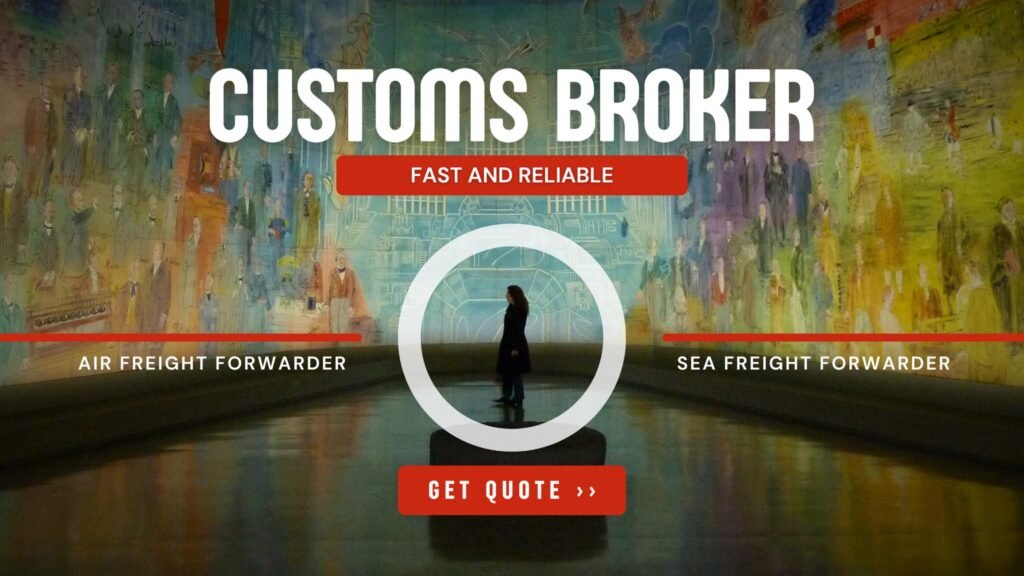Subscribe to the MyCCBI365 newsletter
General FAQs
A customs broker plays a crucial role in ensuring that goods move smoothly and efficiently through international borders, which is essential for an effective supply chain. Their key responsibilities include:
- Customs Compliance: Ensuring that all shipments comply with national and international customs regulations. This includes accurate classification of goods, compliance with tariff codes, and ensuring that import/export duties and taxes are correctly paid.
- Documentation Management: A customs broker handles the documentation required for customs clearance, including invoices, bills of lading, certificates of origin, and import/export permits.
- Tariff and Duty Calculation: Brokers calculate and assess the correct duties and taxes owed on goods, helping companies avoid overpayment or underpayment, which can lead to penalties or delays.
- Facilitating Clearance: Brokers ensure that goods clear customs without unnecessary delays by managing the paperwork, filing declarations, and ensuring that inspections (if required) are handled promptly.
- Risk Management: Customs brokers help identify potential risks, such as compliance issues, tariff increases, or unexpected regulations, and advise businesses on how to mitigate these risks to ensure smooth operations.
Customs brokers are essential in minimizing delays in the supply chain by:
- Faster Customs Clearance: A customs broker is well-versed in local customs procedures and documentation requirements, helping to fast-track the clearance process and avoid unnecessary holds at customs.
- Proactive Problem Solving: Customs brokers can anticipate potential customs issues and address them proactively, whether it's sorting out discrepancies in paperwork, clarifying tariff classifications, or securing necessary permits and licenses.
- Real-time Communication: Brokers often have direct relationships with customs authorities, allowing them to resolve any customs-related issues in real time, reducing wait times for goods to be cleared and released.
- Efficient Use of Technology: Many brokers use advanced technology like Automated Commercial Environment (ACE) or other electronic filing systems, which speeds up the processing of paperwork and ensures faster customs clearance.
This efficient handling of the regulatory and documentation side of the process is critical for reducing delays, ensuring that goods continue to move quickly through the supply chain and meet delivery deadlines.
Working with a customs broker provides numerous benefits that enhance supply chain efficiency:
- Expertise in Customs Regulations: Customs brokers are experts in the ever-changing landscape of international trade regulations. Their in-depth knowledge helps prevent costly errors and ensures that businesses stay compliant with complex customs laws.
- Cost Savings: By ensuring that tariffs and duties are calculated correctly, a customs broker can help companies avoid overpayment or penalties for non-compliance. They can also identify opportunities for cost savings, such as utilizing duty-free exemptions or preferential trade agreements.
- Minimized Risk of Customs Audits: Brokers can help businesses avoid red flags with customs authorities by ensuring full compliance, reducing the likelihood of audits and the resulting delays or fines.
- Streamlined Communication: Customs brokers serve as a single point of contact between companies, government agencies, and logistics providers, simplifying communication and reducing the complexity of managing multiple relationships.
- Global Network and Partnerships: Many customs brokers have established relationships with customs authorities and freight forwarders worldwide, providing businesses with a smoother international shipping experience.
A customs broker helps control costs across the supply chain by:
- Accurate Classification and Valuation: By properly classifying goods and accurately determining their value, brokers ensure that companies pay the correct tariffs and duties, avoiding overpayments or fines for incorrect classifications.
- Access to Trade Agreements: Brokers often help businesses take advantage of international trade agreements, such as Free Trade Agreements (FTAs), which allow for reduced or zero tariffs on certain goods, lowering the overall cost of import/export.
- Duty Drawback Programs: Some countries offer duty refunds or "drawbacks" if goods are exported again after importation. A customs broker can help businesses navigate these programs to recoup duties on goods that are re-exported.
- Minimizing Customs Fines and Penalties: Non-compliance with customs regulations can lead to costly fines and shipment delays. A customs broker helps ensure that all shipments meet regulatory requirements, reducing the risk of penalties.
- Supply Chain Optimization: By coordinating the timing and routing of shipments, brokers can help optimize the movement of goods, reduce unnecessary shipping costs, and avoid inventory bottlenecks or stock-outs.
Not using a customs broker can expose a business to a range of risks that can negatively affect the efficiency of the supply chain:
- Customs Delays and Fines: Without a broker's expertise, businesses risk delays at customs due to improperly filed documentation, incorrect tariff classifications, or failure to meet regulatory requirements. These delays can disrupt the entire supply chain and result in missed delivery deadlines.
- Non-Compliance Penalties: The complexities of international trade laws can lead to unintentional violations, which may result in fines, penalties, or even the seizure of goods.
- Increased Shipping Costs: A lack of proper tariff classification and valuation can lead to overpayment of duties, increasing the overall cost of goods imported or exported.
- Inefficient Communication: Without a customs broker, businesses may struggle to communicate effectively with customs authorities, logistics providers, and other partners, which can result in confusion, errors, and delays.
- Lost Opportunities for Duty Reduction Programs: Companies might miss out on opportunities to reduce tariffs through trade agreements or duty drawback programs if they lack a knowledgeable broker to navigate these options.
Overall, while it’s possible to manage customs processes internally, not utilizing a customs broker often leads to inefficiencies, higher costs, and greater risks, which can negatively impact the supply chain.








